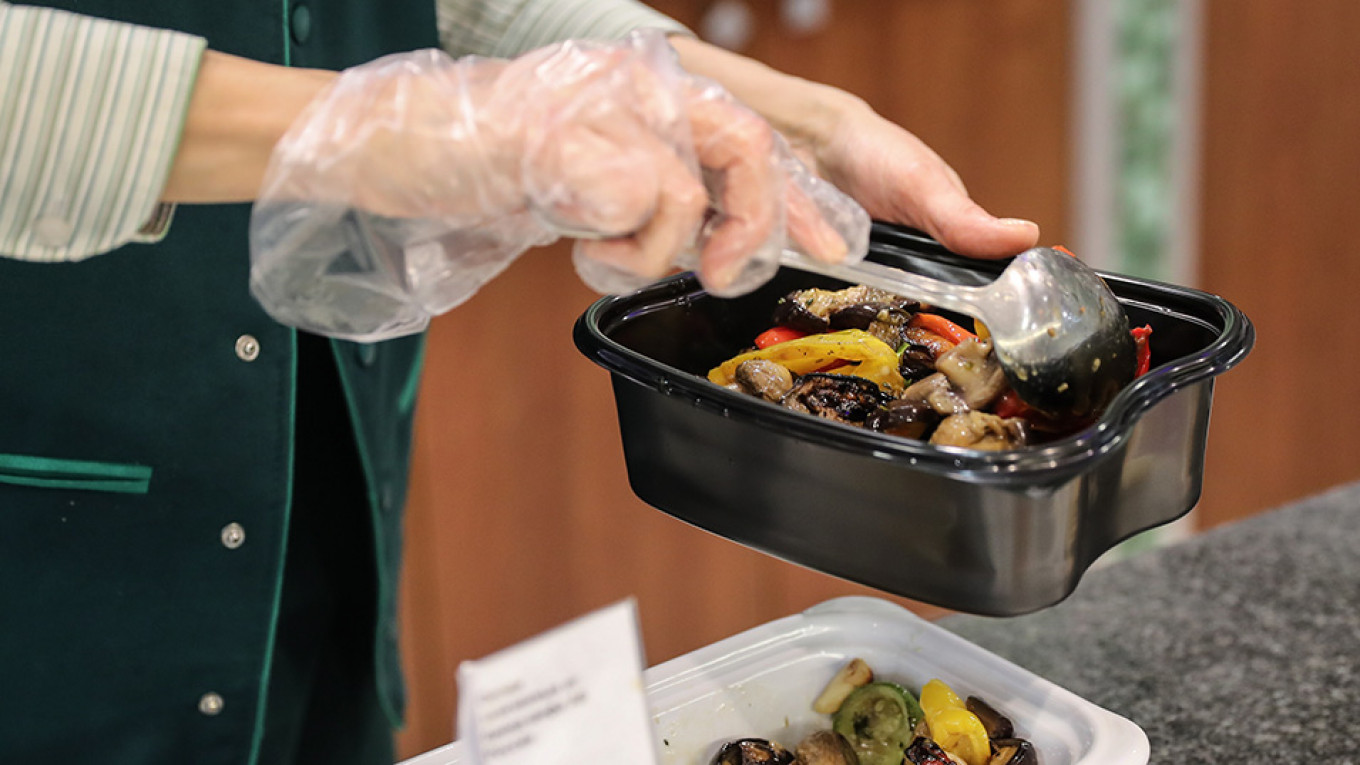Three Russian online delivery startups have ceased operations in the last few weeks, as the digital market for food and groceries expands at a rapid pace and leading tech firms jostle for dominance.
The new players — Golama, Foodza and Superbro — failed to turn a profit or demonstrate viable business models, despite receiving multi-million dollar support from large Russian funders.
VEB Ventures renounced plans for a $7 million capital injection into online grocery delivery service, Golama, Russian business daily Kommersant reported, with VEB considering the risks of the venture to be excessively high. Golama had previously completed a $2.3 million funding round, but failed to secure a co-investor for the latest deal. The startup said it had invested almost $8 million in logistics, order management and CRM systems, and claimed to be “close to break even” before eventually running out of cash.
Foodza, a startup that organized direct supplies of fresh fruit and vegetables to retail stores, restaurants and cafés, is also going bankrupt, after securing $1 million in funds from Mail.Ru, Larix VC and FJ Labs in 2018. The company was led by Vladimir Kholyaznikov, an e-commerce veteran who made his name at the helm of flash sales platform KupiVIP. Kholyaznikov told Rusbase Foodza was close to finalizing a new funding round, but ultimately backed out of the deal, considering the company financially weak and lacking a “sustainable business model.”
Superbro — a spin-off of courier service Dostavista — also stopped operating in January, failing to demonstrate the “skyrocketing growth” its founders had hoped for, after building a network of around 1,200 retailers.
Market Competition
The three failures do not reflect any slowdown of the Russian online delivery market, which has been growing at an annual rate of at least 40% over the last two years, figures from Data Insight show.
“Old leaders like Utkonos and Okey tend to grow more slowly, reducing their market share, while newer companies are grabbing more and more ‘share of voice’ in [the] market,” Data Insight co-founder Boris Ovchinnikov said.
Last summer saw a series of strategic moves in the sector. Food delivery startup iGooods attracted nearly $5 million from Joom, a Russian-founded international marketplace, and PIK Group, a leading residential property developer, invested in a St. Petersburg-based e-grocery service.
Most recently, the Russian sovereign fund RDIF announced its intention to invest in Elementaree, an online meal kit delivery service operating in Moscow and St. Petersburg. Through previous rounds of funding, the last of which was in 2017, Elementaree had already raised nearly $3 million from individual Russian investors.
Russia’s largest companies are also active in an increasingly competitive market. Mail.Ru and Sberbank cemented a new partnership for their own online fast food delivery service, Delivery Club last summer — a rival to a similar service from Russia’s largest tech company, Yandex Eats.
Yandex itself recently launched its own grocery delivery service, with Yandex Lavka promising to deliver groceries to customers within 15 minutes of ordering, using a network of small warehouses filled with 2,000 of the most-popular products such as bread, milk and eggs, dotted around Moscow.
Meanwhile, other signs of growth came from the traditional supermarkets. Chain Perekrestok grew its position in the online food delivery market at an impressive pace last year: processing 1.4 million orders — up three-fold on the previous 12 months.
While online groceries are one of the fastest-growing segments of Russia’s domestic e-commerce market, which grew 25% last year to $25 billion, with the country’s largest and most well-heeled firms on manoeuvres, neither this booming demand nor generous funding have so far been enough to ensure startup success.
A Message from The Moscow Times:
Dear readers,
We are facing unprecedented challenges. Russia's Prosecutor General's Office has designated The Moscow Times as an "undesirable" organization, criminalizing our work and putting our staff at risk of prosecution. This follows our earlier unjust labeling as a "foreign agent."
These actions are direct attempts to silence independent journalism in Russia. The authorities claim our work "discredits the decisions of the Russian leadership." We see things differently: we strive to provide accurate, unbiased reporting on Russia.
We, the journalists of The Moscow Times, refuse to be silenced. But to continue our work, we need your help.
Your support, no matter how small, makes a world of difference. If you can, please support us monthly starting from just $2. It's quick to set up, and every contribution makes a significant impact.
By supporting The Moscow Times, you're defending open, independent journalism in the face of repression. Thank you for standing with us.
Remind me later.







